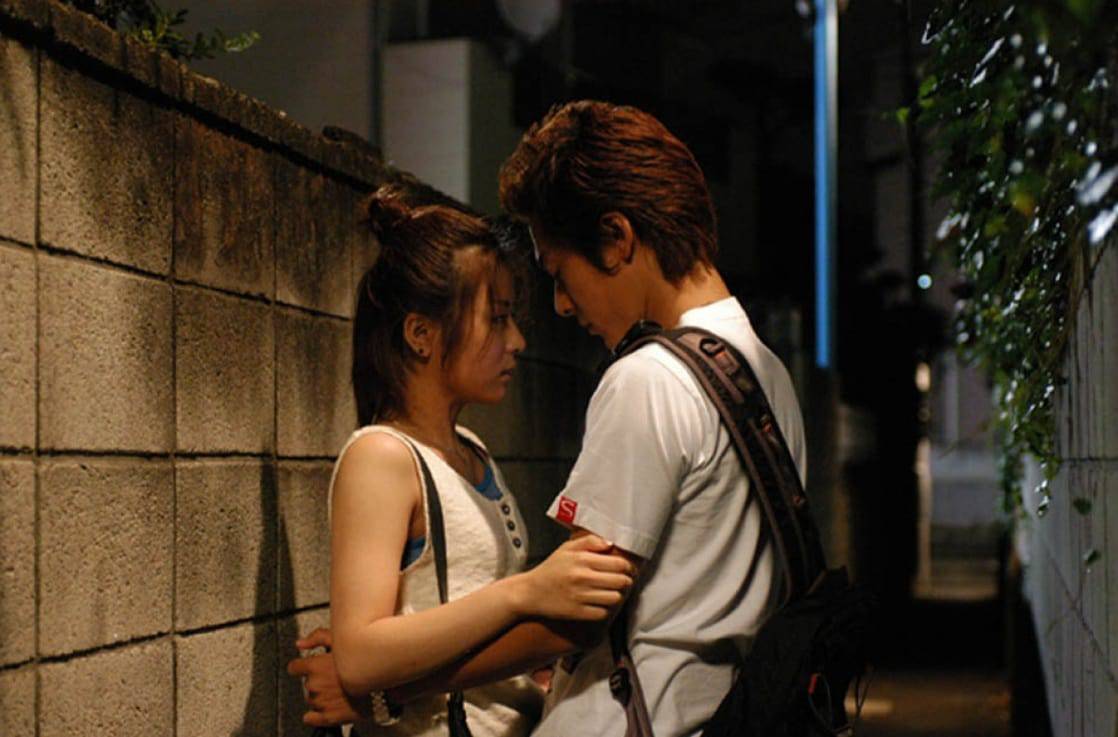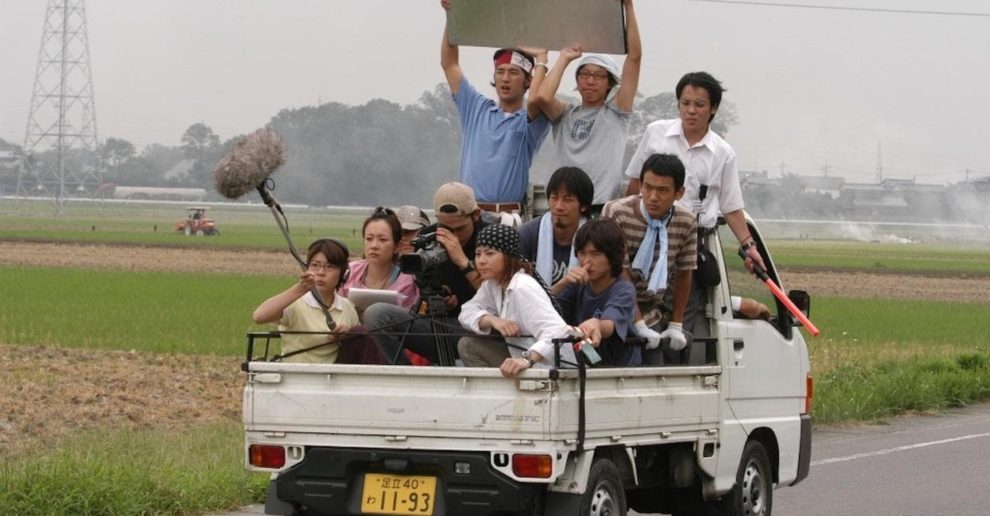Mitsuo Yanagimachi's last work was rather successful, winning Best Film at the Japanese Eyes section of Tokyo International Festival, screening in the Director's Fortnight section at Cannes, getting picked up for distribution in the United States, and garnering rave reviews from all over the world.
Buy This Title

The story is set on the campus of Rikkyo University in Tokyo and its rather meta script revolves around a group of students from the literature department's “film workshop”, who are about to start shooting their movie “The Bored Murderer”. As highlighted in the impressive long shot that opens the movie, everyone in the crew are in a rush to start shooting, but the lead actor drops out in the last minute, throwing their preparations in disarray. Ikeda, a stage play actor that is eventually tasked with the role proves a rather unusual persona, while Matsukawa, the director, has to deal with the pestering of his girlfriend, Yukari, who does not seem to be able to leave him alone. Hisada, first assistant, also has some personal issues to deal with, while the romantic notions among the crew are soon permeate the whole production.
Lastly, the class's professor in charge, Nakajo, who has been nicknamed Aschenbach for his resemblance with Dirk Bogarde, who played the character in the film adaptation of Thomas Mann's “Death in Venice”, is obsessed with a student in the campus, Rei. As the shootings proceed, tension mounts and the lines between reality and fantasy become thinner.
Mitsuo Yanagimachi directs a film that works on a number of levels. One of the most obvious ones is the tribute to a number of directors, with Visconti, Truffaut, Mizoguchi and Argento being referenced in various ways, both literally, through the dialogues of the characters, and indirectly, through the cinematic methods and the script.
The second level revolves around the meta approach, resulting from a film about a film, with the surrealistic way the story progresses offering much entertainment, particularly after it becomes obvious that Ikeda takes the concept of method acting too far. In that regard, Yanagimachi implements a rather playful approach that retains a sense of disorientation for the audience, particularly in the last part where it is quite hard to understand if what you are watching is reality or a part of the movie the students are shooting. This sense works quite well within the narrative, particularly through a number of completely unexpected twists, carrying the interest for almost the whole of the movie's duration, although the “trademark” lagging during the end many Japanese films suffer from is also here.
The third level focuses on the concept of shooting a movie, with Yanagimachi highlighting, with utter realism, what happens during all the stages of production, focusing much on details rarely shown on screen, like the way the costumes are organized or the how the budget is implemented for insuring the actors during dangerous scenes.

This level brings us to the fourth one, that unfolds as a teen romance movie, with the various relationships that are formed or remain unfulfilled, highlighting the dynamics of the group and analyzing the protagonists individually, in rather thorough fashion. Yanagimachi goes about these elements in a style that lingers between the humorous and the ironic, with the overall exploitative relationship between Matsukawa and Yukari being the most eloquent sample of this approach. That the director in this case is proven a rather despicable figure could be even perceived as self-mockery, as much as the whole arc between Nakajo (since Yanagimachi was also a teacher of some years in Waseda university) and Rei, whose conclusion is truly hilarious, even if somewhat dramatic. Furthermore, the open lusting of an elderly man for a really young girl is presented here quite openly, in one of the most “brave” aspects of the films, since the concept is very rarely depicted on screen.
Technically, the production is also on a very high level, with both DP Junichi Fujisawa and editor Hiroshi Yoshida doing a great job. Starting with the rather lengthy long shot that opens the film, and continuing with the rehearsals, the scene on the roof, the one with the crew on the car and the sequences of the finale, the visual prowess of the production becomes quite evident in very frame. The theatricality that characterizes the whole narrative is also well presented in the visual department, while the editing takes care of not allowing the film to stagnate, through a number of occasionally quite frequent cuts, that induce it with a very welcome sense of speed, which also adds to the overall playfulness Yanagimachi implements.
The acting approach also fits the narrative quite excellently, with the interactions of Ai Maeda as Hisada with the whole crew, Shuji Kashiwabara as Matsukawa with both the crew and the annoyingly naive Hinano Yoshikawa as Yukari being quite well acted. Hirotaro Honda as Professor Nakajo is also convincing in the way he presents his lust, Meisa Kuroki as Rei highlights her beauty in a comically femme fatale fashion, while Hideo Nakaizumi portrays Ikeda's intense eccentricity with gusto.
“Who's Camus Anyway?” is an impressive movie that highlights the utter command Yanagimachi has of the medium, and a testament to the directorial abilities of one of the most important filmmakers of contemporary Japanese cinema.
















A thoughtful review but it gave me a terrible feeling as I know Yanagimachi and see him a few times a year. I was shocked to read in the opening sentence that he was dead. This is also mentioned at the end of the article (his “swan song”,). I don’t know where you got this idea but it was past 2AM when I read it and I didn’t want to try calling him so after looking all over the web for other news of his death and not finding it, I sent him an email and went to bed feeling very upset. Thankfully I was able to talk to him this morning. Please correct your article!
You are right of course, that was a terrible mistake. It is now corrected
Thank you!